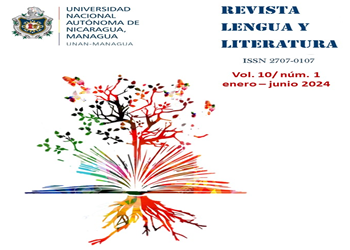Consequences of Ishita's Infertility in Indian Patriarchal Society: An Analysis of Manju Kapur’s Custody through Third World Feminism
Abstract
The main objective of this research is to examine the phenomena of female exploitation in patriarchal culture through a comprehensive examination of the character of Ishita in Manju Kapur's novel Custody from the point of view of third world feminism. Furthermore, this research aims to examine the implications of divorce, alienation, identity crisis and uncertainties of marriage in the context of upper middle class urban Indian families. The novel Custody portrays the story of Ishita, a young Indian woman who is forced to divorce due to her infertility. The novel offers a dramatic illustration of the consequences of divorce, broken marriage and remarriage in the context of urban upper-middle class Indian families. Ishita's character goes through a period of isolation, loss of individual identity and a feeling of alienation. This research uses the postcolonial version of feminism to examine the female protagonist characters Ishita and Sagun. The study attempts to investigate a range of postcolonial/third world concerns, including linguistic dominance, broken marriages, alienation, despair, suffering and sadness. The findings of this research indicate that Manju Kapur's novel Custody is an outstanding representation of the consequences of divorce, broken marriage and remarriage in the context of upper middle class urban Indian families.
Downloads
References
Akbar, A. (2011, March 11). Rev. of Custody [Review of the book Custody, by M. Kapur]. The Independent. http://www.independent.co.uk/arts-entertainment/books/reviews/custody-by-manju-kapur-2238058.html
Anzaldúa, G. (1987). Borderlands/La Frontera: The new mestiza. Aunt Lute Books.
Beauvoir, S. D. (1952). The Second Sex. Penguin.
Benereji, M. (2011, March 4). Custody by Manju Kapur - review. The Guardian. https://www.theguardian.com/books/2011/mar/04/custody-manju-kapur-review
Kapur, M. (2011). Custody. Random House India.
Kristeva, J. (2007). Language and Female Voice. Harper Collins.
Lorde, A. (1984). Sister outsider: Essays and speeches. Crossing Press.
Mohanty, C. T. (2010). Third World Feminism. Rutledge.
Spivak, G. C. (1988). Can the subaltern speak? In C. Nelson & L. Grossberg (Eds.), Marxism and the interpretation of culture (pp. 271-313). University of Illinois Press.
Umachandran, S. (2011, April 17). Book Review: Custody. The Times of India. https://timesofindia.indiatimes.com/home/sunday-toi/book-review/Book-review-Custody/articleshow/8003725.cms
Downloads
Published
How to Cite
Issue
Section
License
Copyright (c) 2024 Universidad Nacional Autónoma de Nicaragua, Managua

This work is licensed under a Creative Commons Attribution-NonCommercial-ShareAlike 4.0 International License.





